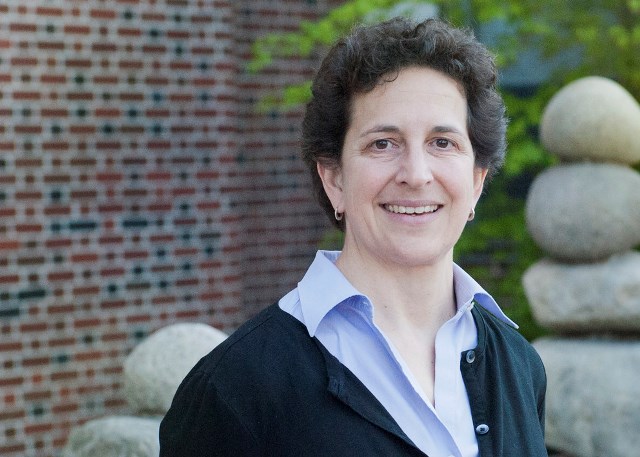National Academy of Sciences Member to Deliver Geoscience Lectures

Katherine Freeman, Ph.D.
Follow us on Twitter: @BaylorUMedia
Media contact: Tonya Lewis, (254) 710-4656
WACO, Texas (Jan. 23, 2017) – National Academy of Sciences member Katherine Freeman, Ph.D., the Evan Pugh University Professor at Pennsylvania State University, will deliver two geoscience lectures as part of the O.T. Hayward Distinguished Lecture Series on Thursday, Jan. 26, and Friday, Jan. 27.
“Dr. Freeman is perhaps the most well-known and widely acclaimed organic geochemist in North America, having been recently elected to the U.S. National Academy of Sciences,” said Steven Driese, Ph.D., geosciences professor and associate dean for research in the College of Arts & Sciences. “She has received numerous awards and medals recognizing her contributions to geoscience.”
Freeman will lecture on “Molecular Clues to Early Human Habitats: Water and Vegetation in the Landscape of Olduvai Gorge” at 7 p.m. Thursday in Room D110 of the Baylor Sciences Building, 101 Bagby Ave. The lecture will focus on how molecular fossils in soils and sediments of Olduvai Gorge, Tanzania, can help scientists learn more about the first human habitats. This lecture is free and open to the public.
“Understanding human origins and human evolution requires understanding how early humans interacted with their landscape and environment,” Driese said. “Olduvai Gorge, Tanzania, is often called ‘the cradle of humanity’ because of its rich fossil record of early humans. It is essential to understand the role that availability of freshwater springs played in providing critical habitats for both game animals and humans utilizing the game animals as a food source.”
Freeman will deliver a second lecture, intended for a more scientific audience, at 3 p.m. Friday in Room E231 of the Baylor Sciences Building, 101 Bagby Ave. The lecture is titled “How Stable Is Stabilized Carbon in Soils When the World Heats up? (An organic geochemist's perspective on lessons from past climates).” In this lecture, Freeman will discuss how scientists can use fossil molecules to quantify changes in soil organic matter and how preserved carbon stocks became unstable during the Paleocene-Eocene Thermal Maximum, approximately 56 million years ago.
The O.T. Hayward Distinguished Lecture Series is named for O.T. Hayward, Ph.D., a geology professor at Baylor who passed away in 2010.
by Kalli Damschen, student newswriter, (254) 710-6805
ABOUT BAYLOR UNIVERSITY
Baylor University is a private Christian University and a nationally ranked research institution. The University provides a vibrant campus community for more than 16,000 students by blending interdisciplinary research with an international reputation for educational excellence and a faculty commitment to teaching and scholarship. Chartered in 1845 by the Republic of Texas through the efforts of Baptist pioneers, Baylor is the oldest continually operating University in Texas. Located in Waco, Baylor welcomes students from all 50 states and more than 80 countries to study a broad range of degrees among its 12 nationally recognized academic divisions.
ABOUT BAYLOR COLLEGE OF ARTS & SCIENCES
The College of Arts & Sciences is Baylor University’s oldest and largest academic division, consisting of 25 academic departments and 13 academic centers and institutes. The more than 5,000 courses taught in the College span topics from art and theatre to religion, philosophy, sociology and the natural sciences. Faculty conduct research around the world, and research on the undergraduate and graduate level is prevalent throughout all disciplines. Visit www.baylor.edu/artsandsciences.